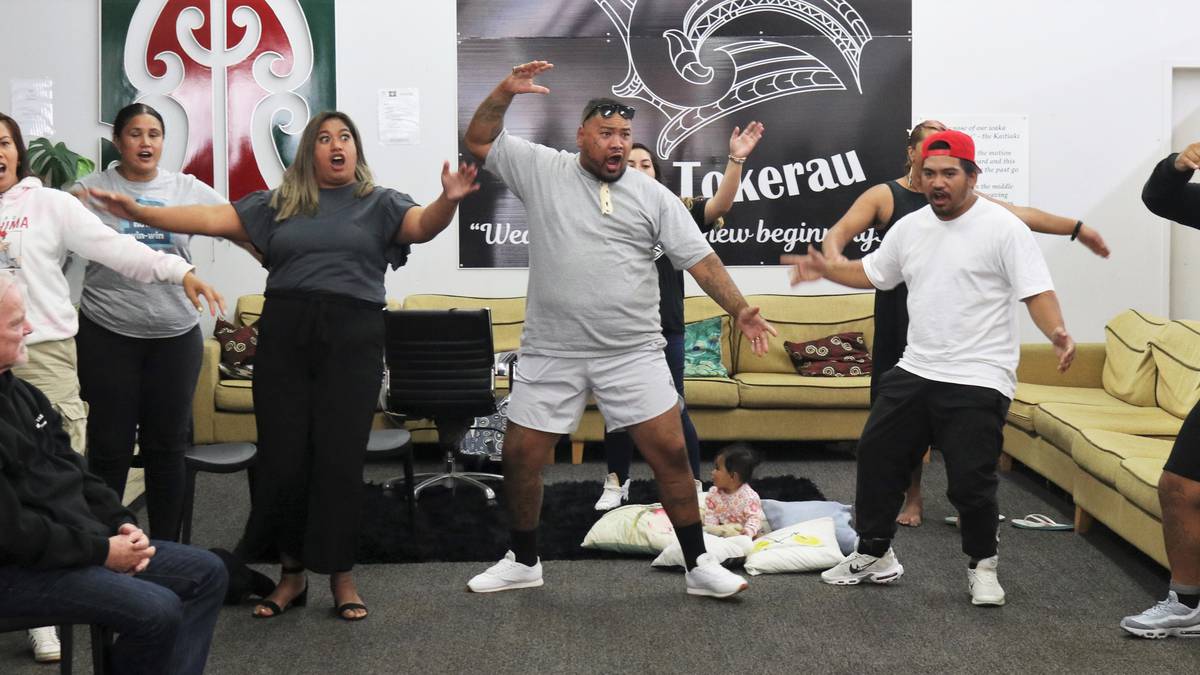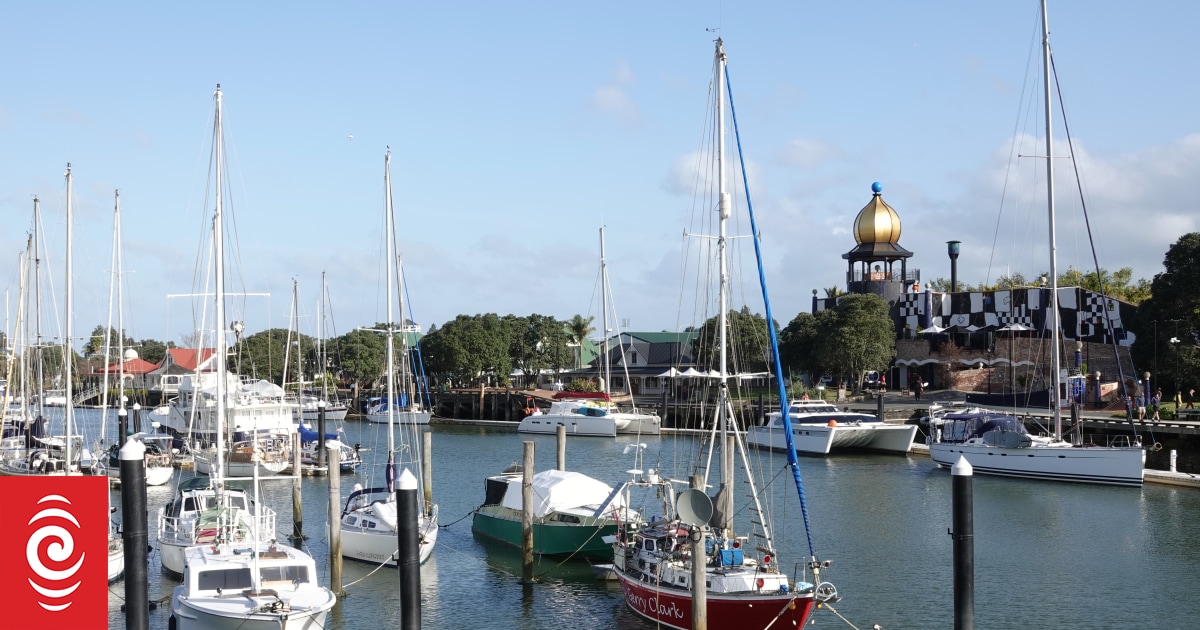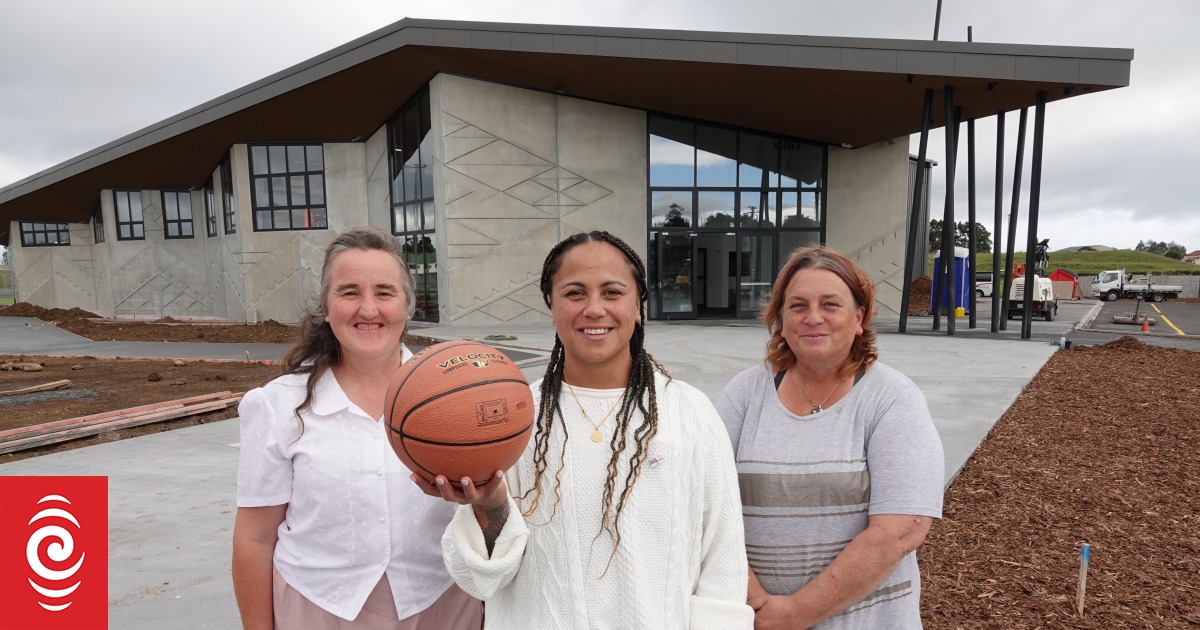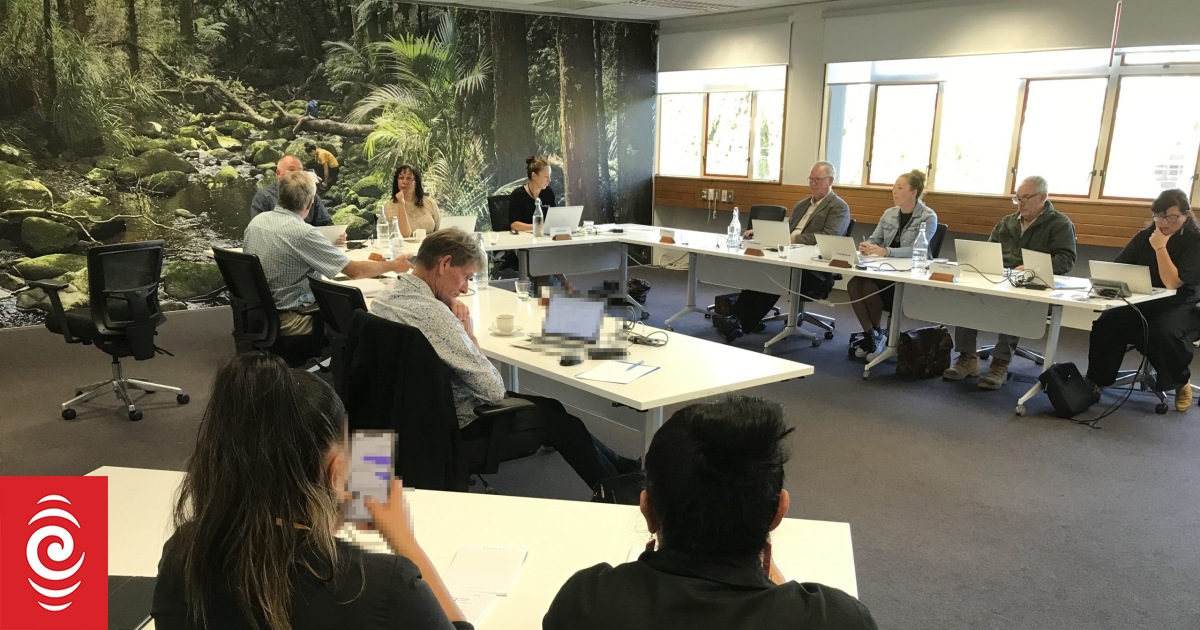Staff and clients of Whakaoranga Whānau Recovery Hub perform a haka for Associate Health Minister Peeni Henare. Photo / Peter de Graaf
A man who took up meth at the age of 14 after losing his mother, father and sister in a crash caused by a drink-driver but now wants to help young people stay out of gangs.
A woman who started injecting drugs at the age of 12 but now has the first job of her life running a life-saving health programme.
A man who has spent his entire life in institutions — first as a child ward of the state, then as a prisoner — but now has a group of people he regards as family.
Those were just a few of the people who shared, without shame or self-pity, their harrowing life stories and hopes for the future when Associate Health Minister Peeni Henare visited Kaikohe on Thursday.
Advertisement
The minister was visiting Whakaoranga Whānau Recovery Hub, a community-led centre for people with mental health and addiction issues, to see first-hand how a new funding model is working.
The clients, or tāngata whai ora (’people seeking health’), told Henare how they had ended up at the hub and how it had changed them.
Lesley Allen said she had been an intravenous drug user from the age of 12 and her father had died of a drug overdose.
She was given a chance to turn her life around when “Whaea Rhonda” — the hub’s kaiwhakahaere (manager) Rhonda Zielinski-Toki — pulled her out of jail and gave her a place to live.
Advertisement
Now she was training to be a peer support worker and setting up a hepatitis C testing programme in cooperation with Odyssey House and the Needle Exchange.
With a hep C cure now available, the programme would save the lives of people who’d been infected by drug use or home tattooing.
“It’s something I’m really passionate about. It’s my first job ever and I love it,” Allen said.
The hub had also given her something else: “This is my family now.”
/cloudfront-ap-southeast-2.images.arcpublishing.com/nzme/FTBKPTLBZVBENPDNIWWYRNKAI4.jpg)
Hoani Matene, who was 11 when he lost his family to a drink-driver, took up cannabis aged 12 and methamphetamine at 14. He had been in and out of prison ever since.
Matene said he was told to go to the hub when he was “going through a toxic time” and risked losing his children.
At first he went only as “a box-ticking exercise” in the hope of keeping his kids.
“But now I’m making a change, for the rangatahi [youth] out there. I want to help them,” he said.
“I’ve grown to love this place. It’s provided me with a safe place to talk about my past and all the feelings I’d suppressed for so long. It’s given me so much aroha. If it wasn’t for this place I’d still be in a gang, I’d probably still be in jail, I’d still be beating up my wahine and I wouldn’t have my kids. I’d be homeless as well because Whaea Rhonda housed us when our home burned down.”
/cloudfront-ap-southeast-2.images.arcpublishing.com/nzme/CIXHIJSOMNHXHA3MZMQPP5DGBE.jpg)
Zielinski-Toki said the Whakaoranga Whānau Recovery Hub had struggled in the past with the one-size-fits-all funding contracts offered by the government and, as a small community-led trust, the huge amount of paperwork required.
Advertisement
Now, under the Māori Access and Choice funding programme introduced a year ago, small service providers like hers could simply tell officials what services they offered.
The officials then drew up a funding contract tailored to match those services.
“It has allowed us to do what we do, which is to provide community-led mental health and addiction services, a community space for tāngata whai ora and their families, daily education and training programmes, and help with housing.”
/cloudfront-ap-southeast-2.images.arcpublishing.com/nzme/UJUXEJZPUFHETJPPMBOEHRKBJI.jpg)
Henare’s visit coincided with the release of an independent report into the new funding model commissioned by Te Whatu Ora-Health New Zealand.
He said the programme’s tēina (literally ‘younger sibling’) funding stream targeted small, frontline service providers such as Whakaoranga Whānau Recovery Hub which had often missed out on funding in the past.
That was because they didn’t have the back-office support to deal with “the rigmarole and mountains of paperwork” that usually came with government funding.
Advertisement
Small providers could now apply by video, by letter or online, with officials shaping their applications into formal contracts.
Henare said he had also changed the rules so providers could apply in te reo Māori.
The new contracting model had “shaken the system to the core” — but the report showed the innovative approach was allowing providers such as the Kaikohe hub to make a difference in people’s lives.
“The report says the new system still needs work, we’re not going to lie about that, but the research shows it works.”
/cloudfront-ap-southeast-2.images.arcpublishing.com/nzme/6JWHBLFZ4VE6HNKOV7AWHE527E.jpg)
Henare said he had visited 29 similar service providers up and down the country but had insisted on going back to Kaikohe for a return visit.
“That’s because this is the only one that made me cry, because of the stories that were told,” he said.
Advertisement
Henare said the Government’s role was to let Zielinski-Toki and her staff get on with their work.
“We’re not going to tell you what to do. You’ve got the winning formula. Our job is to get out of the way and provide the water to make the flowers grow.”
The minister’s visit last Thursday also coincided with the hub’s third anniversary.




